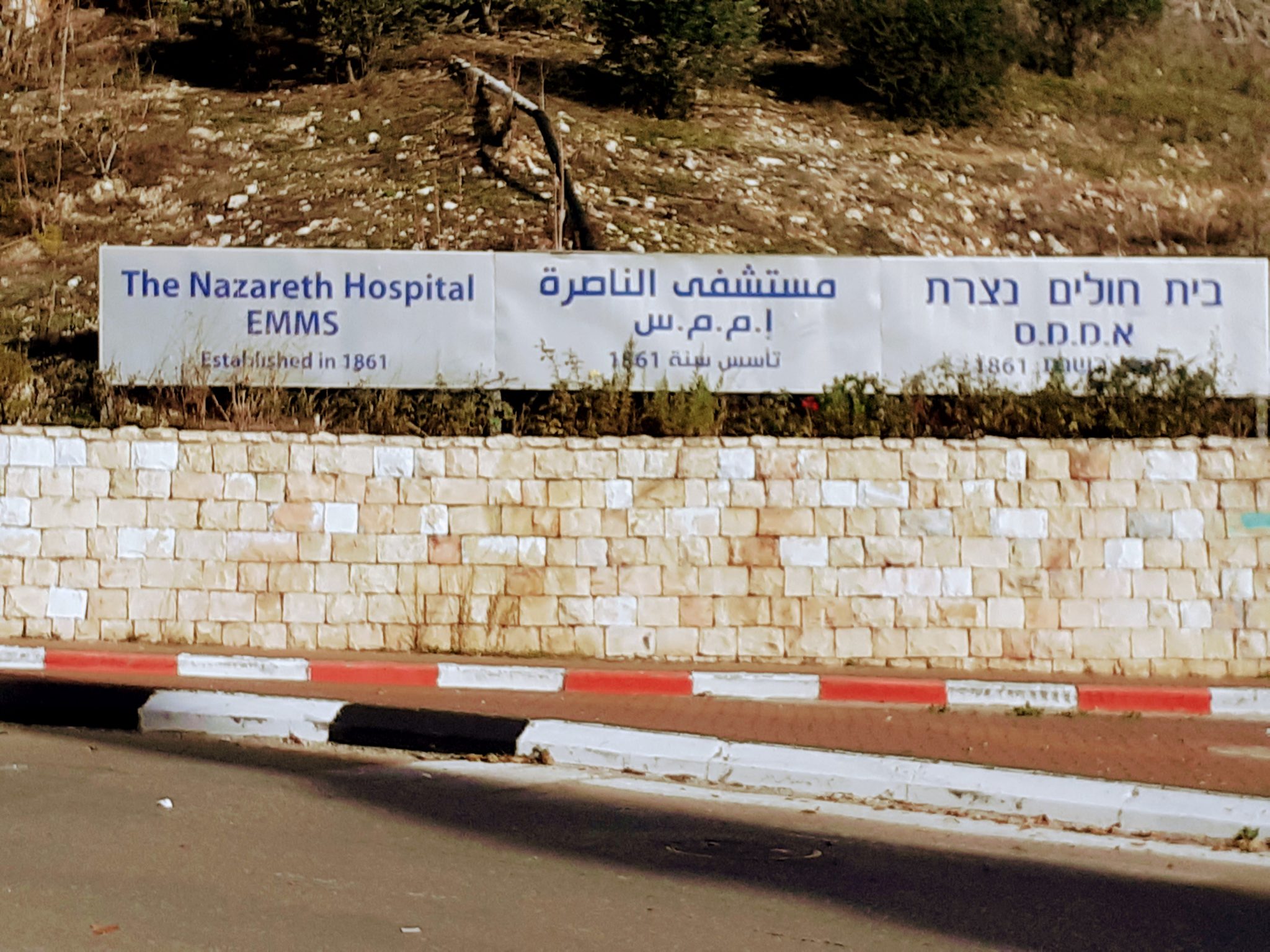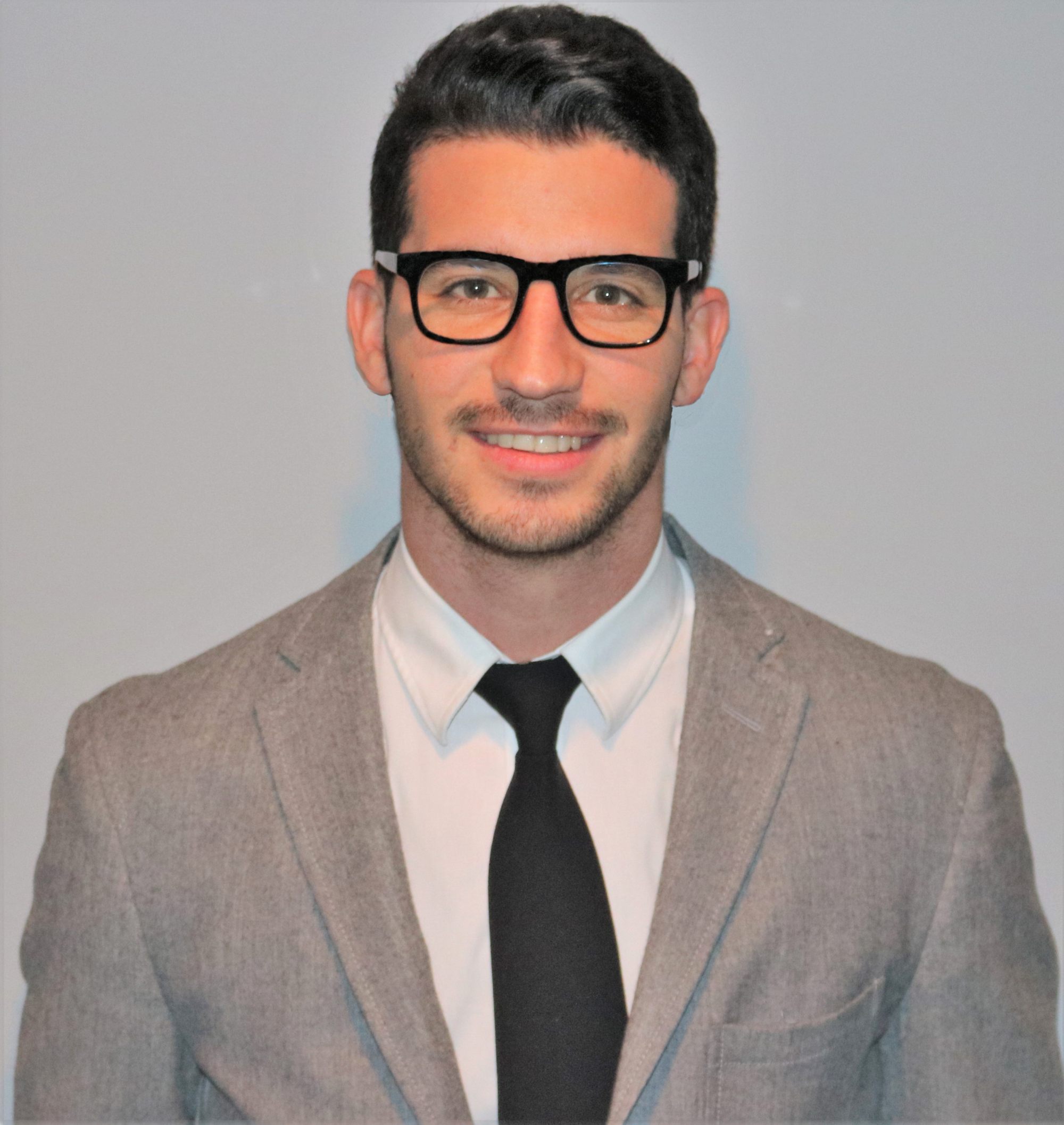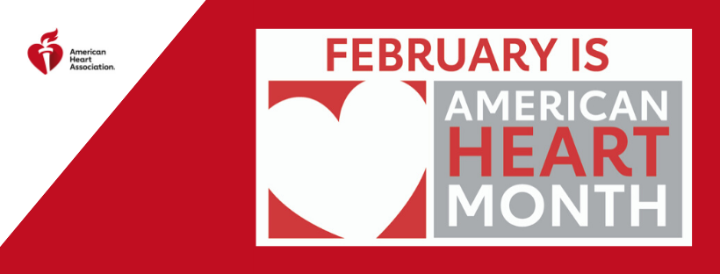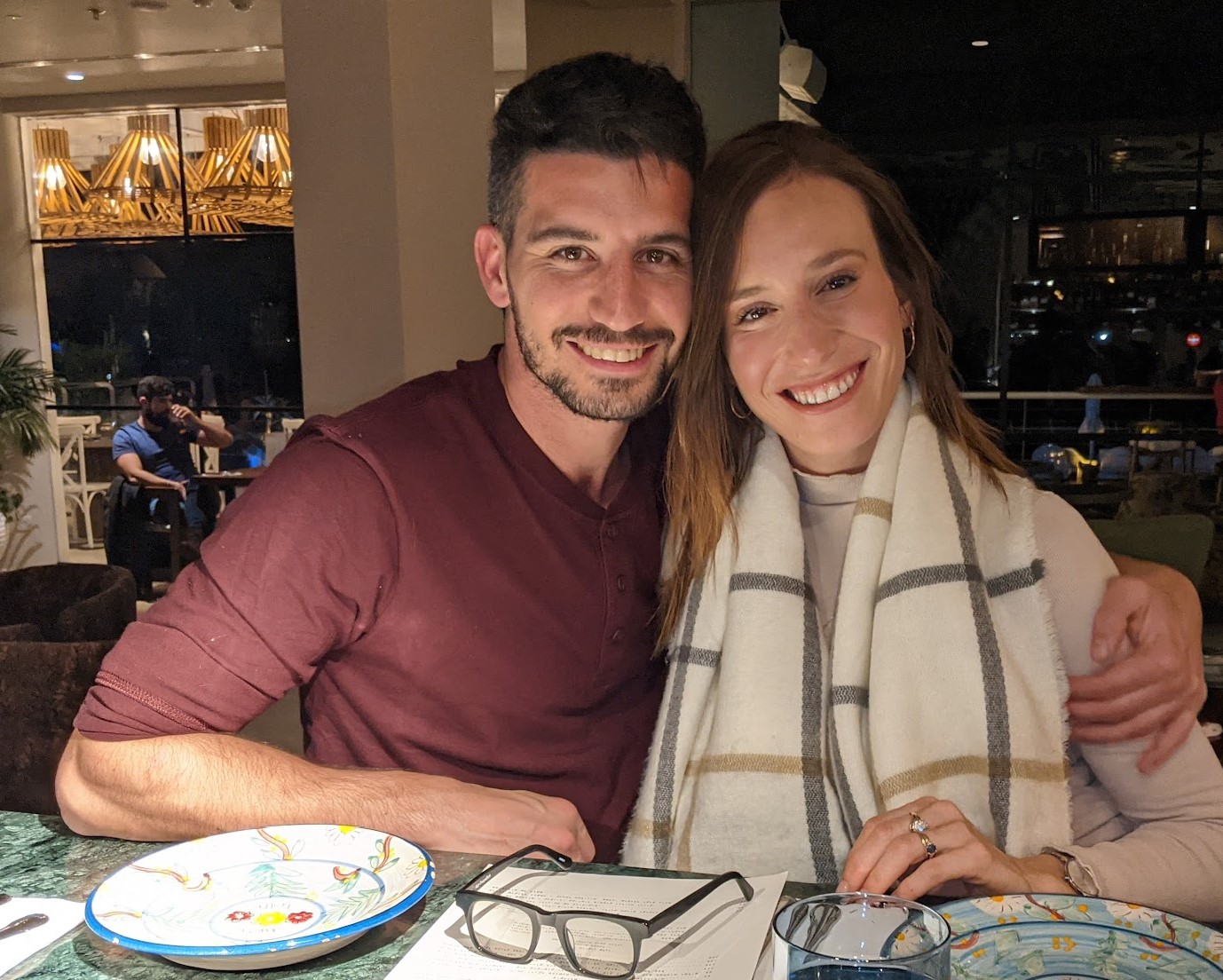The capstone experience at MSIH is an 8-week global health clerkship in an under-resourced clinical setting around the globe. MSIH students learn how physicians and medical practitioners in different cultures promote health and quality care despite limited resources. Typically, these clerkships are in India, Nepal, Sri Lanka, Ethiopia, Ghana, Mexico, Peru and Canada.
Given the pandemic, MSIH faculty and staff have had to pivot, and students are participating in different global health experiences this year. Some of these experiences are in Israel, in nearby Bedouin clinics, as well as at hospitals in Nazareth and Eliat. Other global health clinical experiences are in under-resourced settings in the US and Canada.
Nisi Goldstein is a fourth-year student at MSIH. She is currently doing her global health clinical rotation at Nazareth Hospital. Here are her thoughts:
I am Jewish. I am white. I grew up speaking Yiddish in a small community in Brooklyn. I’ve picked up a couple of Arabic words via Duo-lingo, I suppose.
I know how to say “Marhaba” and “Shukran”.
I have a sticker on my laptop that says “Coexist”. On this same sticker, there’s a star of David inscribed near a crescent and star as well as a cross. I believe in equal rights for all.
Still.
There is something I cannot put my finger on as my bus pulls into Nazareth on Monday morning for week one of my Global Health elective.
There is my bank – Leumi – but its storefront is in Arabic. That’s my clinic – Clalit – but also, in Arabic. To be clear, I feel completely safe and eager. I feel entirely happy and joyous to be here today. But I feel just a bit different. And I want to be able to notice that I feel different. If I want to be wholly honest with myself, I want to be able to recognize that I am not in my comfort zone. And I want to be able to genuinely, without reservation, ask myself why that is. I want to be able to make the unconscious bias; conscious.
Nazareth is the largest city in the northern district of Israel and it is known as the “Arab capital of Israel”. Its inhabitants are predominantly Arab citizens of Israel, of whom 69% are Muslim and 30.9% Christian. Nazareth Illit/Nof HaGalil is built alongside Nazareth, but is declared as a separate city, and in 2014, had a Jewish population of 40,312. In the New Testament, Nazareth is described as the childhood home of Jesus and as such is a center of Christian pilgrimage with many shrines commemorating biblical events. (Wikipedia)
I’m going to be in surgery this month. Dr. Abbud and Dr. Reem from the department greet us warmly. They are so happy to have us here, they say, and they want to teach us well and provide an excellent and immersive learning experience. The other surgeons are welcoming too. The scrub nurses offer chairs during surgeries and food during break and they say they can speak English or Hebrew to us, whatever we prefer, really.
There are quite a few gastric bypass surgeries. I get to see a French cesarean section for the first time and when my colleague asks the surgeon for clarification on the procedure, I find my thoughts wander. I look at the surgeon and I know I should pay attention, but I can’t help but wonder about his path to medicine as opposed to mine. I think about the woman on the operating table. “What is her life story?” I read up on the procedure later.
And perhaps this is what Global Health means for me this week.
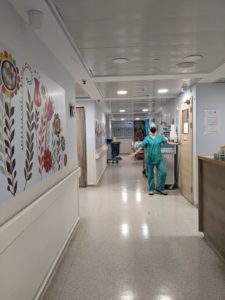 Maybe this week is not only about the practice of a compassionate and idealistic medicine – which is exactly why I chose to study at MSIH – but it is also about the mindful intention I set to bridge cultural gaps as well as the gaps between what I know and what I feel, a bridge that unites mind and heart. It is about truly feeling in my gut, in my knee-jerk reaction, that all of us humans are one and the same.
Maybe this week is not only about the practice of a compassionate and idealistic medicine – which is exactly why I chose to study at MSIH – but it is also about the mindful intention I set to bridge cultural gaps as well as the gaps between what I know and what I feel, a bridge that unites mind and heart. It is about truly feeling in my gut, in my knee-jerk reaction, that all of us humans are one and the same.
And this is why our global health curriculum at MSIH is so unique – because it is not just about learning from other cultures and communities via PowerPoint presentations in the comforts of our home countries. Rather, it is about entirely immersing ourselves in those cultures, it is about listening and experiencing up close, one on one, looking into the eyes of another whose name we have trouble pronouncing, so that as a result we can begin to not just believe intellectually, but also to truly feel that despite saying hello and good-bye differently, all of us laugh the same and cry the same. We feel the same and we want the same.
I have found that it is not the classroom that is our best teacher. It is neither the print media nor the broadcast news that truly inform us. Rather, it is listening to someone’s life story over coffee, it is having a beer and a hookah and an experience. It is travel, it is speaking to someone who looks different than us, it is eating at their table that tells us almost everything we need to know about our very different but oh so similar humble human existences.
I think that this is one of the things that transpires when we do global health. Maybe each time our buses pull into Nazareth, a Bedouin village in the South, a small hospital in Eilat, the northern Galilee, or a remote village in Kerala, if we do it enough times, and if we interact compassionately with enough humans, our “feeling different” eases just a bit more, until we begin to truly feel in our bodies, that we are not so different after all.
Yes, we learn surgery and procedure and guidelines for the practice of medicine. But we also begin to realize that our earth, despite it being segmented and separated and bordered, is one home, one globe for all. We begin to realize that it is in the way we practice medicine that we have the power to eliminate borders and biases, to widen each others’ comfort zones, and to build bridges.
There is a makeshift dallah in the Doctor’s lounge and I drink a lot of strong Arabic coffee – Cardamom flavored of course.
A dallah is a traditional Arab coffee pot with mini cups that are usually adorned with a decorative pattern known as a finjān. But we drink from paper cups. Arabic coffee is served just a few centiliters at a time and I try to be discreet when I refill my mini paper cup one too many times. In Arab culture, coffee serves as a ceremonial act of kindness and hospitality. (Wikipedia)
I enjoy speaking with Dr. Reem. She asks about my commitment to global health. I say that when I finish residency, I want to go where I’m needed and that sometimes, for me, that would mean getting on a plane while at other times, it might mean finding the global health at home.
Dr. Reem is the only female attending surgeon in this hospital. She says it’s important to dedicate 3 hours of one’s day for growth – one for walking, one for reading, and one for meditating.
The arduous and winding path of Roux-en-Y with all its twists and turns finally begins to make sense to me this week. I still tend to get lost mid jejunum but pictures and diagrams help. The scrub nurse jokes, “Okay, it’s your turn to do one now! See one, do one, teach one.”
This week, I put on psychological protective gear as I finally decide to enter the orthopedic OR for the first time. Last week, when Mary, the petite and energetic nurse with beautiful silver hair, relayed the ortho schedule to me, I said to her, “That’s one area of surgery that I’m going to choose to dissociate from.” So this is progress.
They are doing a rotator cuff arthroscopy for a patient with supraspinatus and subscapularis tears. The instruction by Dr. Gadir is impeccable. “They are inserting the anchor now, look,” the Israeli nurse from Rosh Hanikra tells me. The intern bangs a little silver hammer five or six times and voila, it’s in. “ايوه – ‘aywa!!”, everyone in the room exclaims.
Someone smuggled Santa shaped chocolates, Christmas leftovers, into the OR. I save mine for later.
Ma’a al-ssalāmah for now, my friends. L’hitraot.


